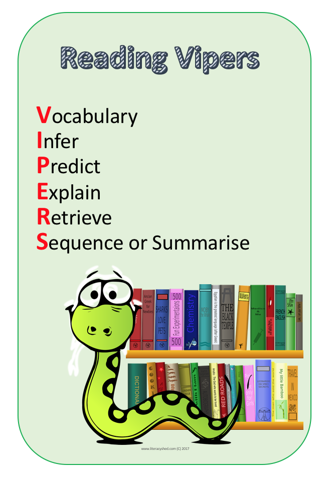Intent
The overarching aim for English in the national curriculum is to promote high standards of language and literacy by equipping pupils with a strong command of the spoken and written language, and to develop their love of literature through widespread reading for enjoyment. The national curriculum for English aims to ensure that all pupils:
- read easily, fluently and with good understanding
- develop the habit of reading widely and often, for both pleasure and information
- acquire a wide vocabulary, an understanding of grammar and knowledge of linguistic conventions for reading, writing and spoken language
- appreciate our rich and varied literary heritage
- write clearly, accurately and coherently, adapting their language and style in and for a range of contexts, purposes and audiences
- use discussion in order to learn; they should be able to elaborate and explain clearly their understanding and ideas
- are competent in the arts of speaking and listening, making formal presentations, demonstrating to others and participating in debate
For further information about the Primary National Curriculum for literacy , please follow this link.
Implementation
Individual reading
When pupils at Meadowside are fluent, independent readers they move away from using the Read, Write Inc (RWI) scheme used in the early stages of their reading journey (find out more about RWI on the early reading and phonics page). In Year 1, pupils are moved onto colour banded books and from Year 2 they are moved onto Accelerated Reading books. Accelerated Reader is used from then on throughout the school.
Accelerated reader
Accelerated Reader (AR) is a program whose intent is that pupils enjoy reading more when they can select their own books. (The program has more than 150,000 titles to choose from on its BookFinder list.) Each book has online “reading practice” quizzes, which are referred to as “AR tests.” Teachers use these quizzes to track each pupil’s progress and set appropriate goals for them. It’s intended to encourage pupils to read independently, at their own level and pace.
Pupils are guided with personalised goals around the three factors proven to make reading practice most effective:
- Comprehension
- Quantity
- Complexity
KS2 Whole Class Reading
For the teaching of reading in our KS2 learning environments, we provide four specific reading lessons focused on not only age-related expectations but also on cross curricular opportunities for our pupils to acquire knowledge through text exploration. For our whole class reading (WCR), each year group focuses on whole or text extracts covering a range of genres, these extracts are varied to include fiction, non-fiction, notable people, history themes, geography themes, poetry, science, SMSC themes and more. Opportunities are utilised for individual pupil thinking or response to texts/themes alongside shared discussion and presentation of opinion based on the text with the aim to enhance oracy and vocabulary development. These sessions provide opportunity for all pupils to be heard read by their class teacher weekly to support assessment for learning in the sessions.
During the sessions pupils will have the opportunity to work and read in different ways:
- Vocabulary check - introduces the pupils to new words and checks meaning.
- Quick Start – includes repetitive style questions to encourage a general understanding of texts.
- Individual thinking - encourages independent thinking.
- Partnered talk - encourages discussions, personal views and debate.
- Solo work – opportunities to record their ideas and responses in writing in their reading books.
Each session will also have a VIPERS focus. VIPERS is an acronym to aid the recall of the 6 reading domains as part of the UK’s reading curriculum. They are the key areas which we feel pupils need to know and understand in order to improve their comprehension of texts.
V – Vocabulary
I – Infer
P - Predict
E - Explain
R - Retrieve
S - Sequence (KS1) or Summarise (KS2)
Vocabulary
Pupils are taught to draw upon knowledge of word meanings in order to understand the text. This may also include finding and explaining the meaning of words in the context of what they have read. These conversations are a great way to discover which words pupils know and fill gaps in this knowledge, expanding their own repertoire of vocabulary. For older pupils, they are encouraged to use a dictionary or the internet to find definitions. ‘Vocabulary’ questions might include finding alternative words or discussing which words are the most effective in an extract.
- What does ______ mean?
- Can you tell me another word that means _____?
- Which word tells you that the character is angry?
- Which word tells us something bad is about to happen?
- Which word in this section do you think is the most effective in building the suspense?
Infer
To infer is to find meaning that is not made explicit in the text. Pupils will use their understanding of a wide range of prior experiences to make sense of events in what they see and read. As pupils get more confident, they should start to increasingly back these inferences up with evidence from the text. They may paraphrase or even directly quote to justify what they think.
- Why was the character feeling happy?
- Why did the character run away?
- What kind of person is _____? How does the author show that?
- How can you tell the animal is in pain?
- How can you tell this house has not been looked after?
- How is the character feeling? How do you know that?
- What impression do you get of this setting?
Predict
Pupils are encouraged to predict what they think might happen based on the events so far and details that are implied in the text. The emphasis here is not to necessarily be right – if all books were predictable, that could become very dull – but to engage with the plot and actively think about where the journey of the story might go.
- Look at the cover. What do you think this book will be about?
- What do you think will happen next? What makes you think this?
- Do you think they will be successful in their quest? Why / why not?
- How do you think the character is going to react? Why do you think that?
- Look at the chapter title.
What do you think might happen?
Explain
Pupils are encouraged to explain their preferences, thoughts and opinions about a text. As they get more confident, pupils should also be able to explain themes and patterns across a text as well as why authors have made certain choices and the impact of these on the overall effect of the writing.
- Who is your favourite character? Why?
- Would you like to live in this setting? Why / why not?
- Is there anything you would change about this story?
- How does the author build up the tension here?
- Why do you think the author doesn’t name the villain yet?
- Why has the text been arranged in this way?
Retrieve
This skill concerns finding and recording information located in the text. It tends to cover some of the more straightforward and closed questions that don’t require as much inference (often beginning with who, what, when and where). However, the challenge can lie in pupils having to skim back over large quantities of text. You can support your child by helping them to narrow down sections to search and scan for key words that will help them look for the information they need.
- In what year did the astronauts land on the moon?
- What did the parents decide to name their baby?
- Who was the first character to climb on the boat?
- Give an example of one of the grandmother’s warnings.
- Where did the squirrel hide the food?
- What were the three things Bob was asked to pack?
Sequence / Summarise
Pupils are taught to recap the events of a narrative and put them in order (sequence) or sum them up (summarise). This can be an effective way to remind pupils of the story so far in a longer text or to build familiarity with a shorter book or traditional tale. For younger pupils, the ability to retell a well-known story from their head is an important step in their development and will give them the foundation on which to build their own stories later on.
- How did the story start?
- What happened next?
- Number these events 1 – 5.
- Can you summarise the story so far?
- What happened in the story so far?
- How has the character’s life changed throughout this book?
Encouraging a love of reading
At Meadowside, we want our children to love reading in all its forms. We believe providing children with exciting places to read will help to encourage this ethos.

Meadowside has a beautiful school library, which was completed in May 2021. The school resident artist used inspiration from some of the children’s favourite texts to create a, sensational, colourful and unique setting for our shared books. Pupils have timetabled access to the library and may choose any book, which interests them, they can then take them home. Books are organised by author surname for fiction books and using the Dewey Decimal Classification system for Non-Fiction books.
In Nursery, Reception, Year 1 and Year 2 each class has a designated reading area or book corner. Children have access to these throughout the day. In Key Stage 2 there are reading spaces in the shared areas which children can use throughout the day when appropriate.

Reading events
We hold regular reading events throughout the year, book fairs, book stalls, World Book Day and Creative Mission Days all help to keep reading a key focus of Meadowside Primary School.
Parent Support
Parents play an important role in supporting and promoting positive reading habits. It is expected (as outlined in the school homework policy) that children are given opportunities to read at home. Your child will be responsible for bringing a school reading book home each day. During their homework time it is expected they should read for between 10 and 15 minutes at least four times each week. With younger children, this would need to be with an adult or older sibling who can record their reading in the school reading record. With older more independent readers this may be reading by themselves and then a discussion with an adult about events, information or characters after reading. The child may record their progress in their own reading record. School reading records are checked regularly by staff and can be a useful platform for asking questions about your child’s reading and learning. Please use the records to let teachers know if your child has struggled, asked questions, explained vocabulary or if they have or have not enjoyed the book.
Don’t forget it is still important to read to your child and share books together.
Reading Files











